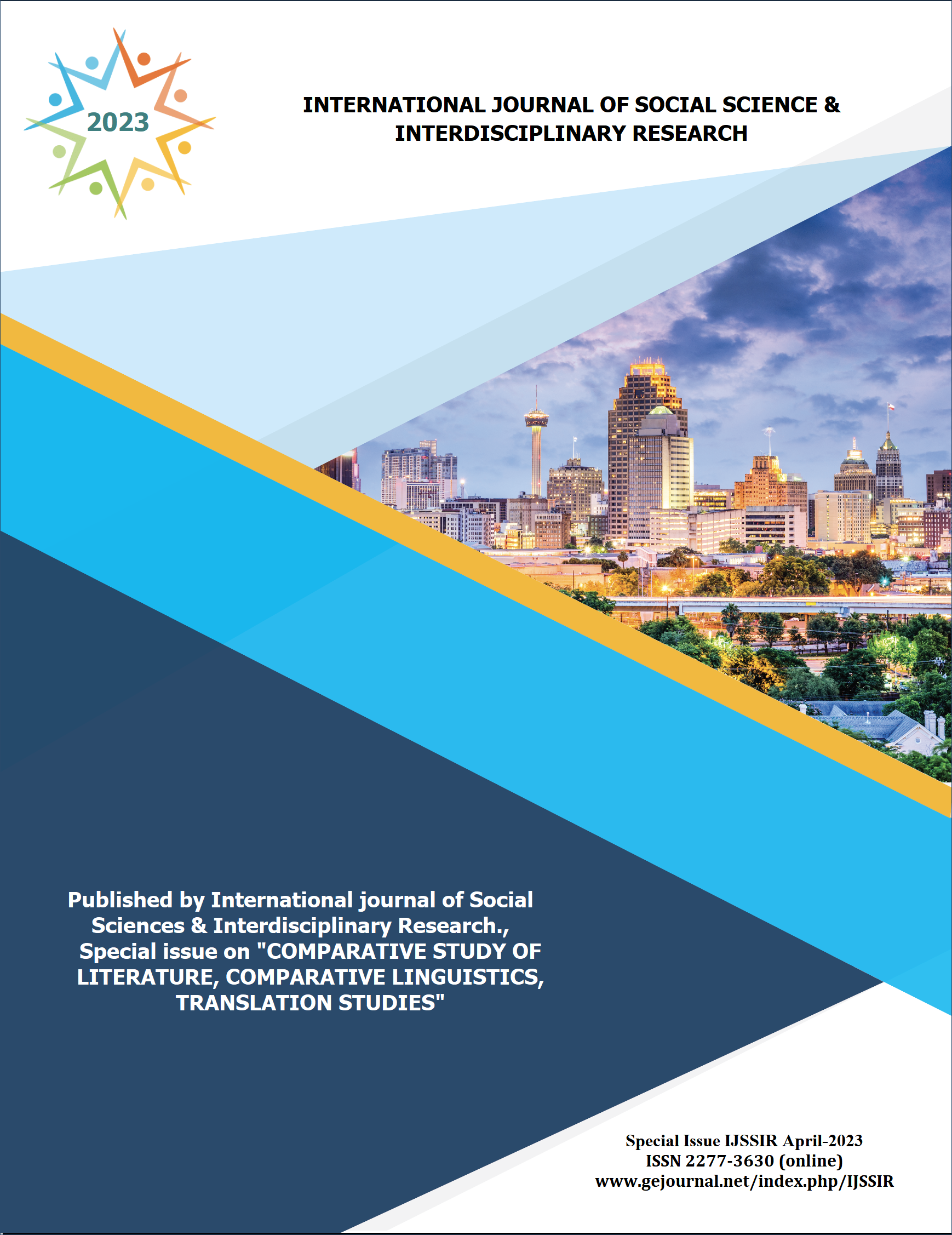TURNING PROGRAM IMPROVING WRITING SKILLS
Keywords:
core components of effective writing, a code editor, taking an online course, write overnight, grammar and word choice, professional context, improve skillsAbstract
Writing skills are the skills you use to write effectively and succinctly. A good writer is someone who can communicate their point to their audience without using too much fluff and in a way that the other person can understand. Writing skills don't just include the physical act of writing.
References
The Strategies, Ideas and Recommendations Here Come Primarily From:
Gross Davis, B. Tools for Teaching. San Francisco, Jossey-Bass, 1993.
And These Additional Sources…
Boris, E. Z. "Classroom Minutes: A Valuable Teaching Device." Improving College and
University Teaching, 1983,31(2), 70-73.
Elbow, P. "Using Writing to Teach Something Else." Unpublished paper, 1987.
Hawisher, G. E., and Selfe, C. L. (eds.).Critical Perspectives on Computers and
Composition Instruction. New York: Teachers College Press, 1989.
Holdstein, D. H., and Selfe, C. L. (eds.). Computers and Writing: Theory, Research,
Practice. New York: Modern Language Association, 1990.
Lowman, J. Mastering the Techniques of Teaching. San Francisco: Jossey-Bass, 1984.
Petersen, B. T. "Additional Resources in the Practice of Writing Across the Disciplines."
In C. W. Griffin (ed.), Teaching Writing in All Disciplines. New Directions in Teaching and Learning, no. 12. San Francisco: Jossey-Bass, 1982.
Professional and Organizational Development Network in Higher Education.
Juraeva, M. M. (2017). Linguocognitive, national and cultural features of the category of modality in French and Uzbek fairy tales. Tashkent. 233/253 p.(Diss. filol. fan. dok.).
Jurayeva, M. M. (2016). Linguocognitive, national-cultural features of the modality category in French and Uzbek fairy tales. Dis. abs. doc. phil. sci. Tashkent.
Жўраева, М. М. (2017). Француз ва ўзбек эртакларида модаллик категориясининг лингвокогнитив, миллий маданий хусусиятлари: филол. фан. докт.... дисс. автореф. Филология фанлари доктори илмий даражасини олиш учун тақдим этилган диссертация.
Juraeva, M., & Bobokalonov, O. (2020). Pragmalinguistical study of french-uzbek medicinal plant terminology. Electronic journal of actual problems of modern science, education and training: Modern problems of philology and linguistics, 6(1).
Juraeva, M. M. (2015). 333 virelangues, poesies, devinettes.
Juraeva, M. M., & Nosirova, D. M. (2014). Le sport et la vie saine.
Juraeva, M. M., & Khamidova, M. K. (2020). LINGUOCULTURE AND LINGUOCULTUREME. Scientific reports of Bukhara State University, 3(4), 111-114.
Juraeva, M. M. (2017). Linguocognitive, national and cultural features of the category of modality in French and Uzbek fairy tales. Tashkent. 233/253 p.(Diss. filol. fan. dok.).
Mukhammadovna, J. M. (2016). The national, cultural and linguocognitive peculiarities of modality of the french and uzbek fairytales. GIF. LangLit. An International Peer-reviewed Open Sccess Journal, 3(2), 81-86.
Juraeva, M. M. (2014). Receils of proverbs.
Juraeva, M. M. (2016). Linguocognitive, national and cultural features of the category of modality in French and Uzbek fairy tales.(monograph).
Juraeva, M. M. (2014). Receils de la poesiefrancaise.
Muhamadovna, J. M. (2019). Theoretical views of concept, frame, tale-concept, tale-frame in cognitive linguistics. International Journal of Engineering and Advanced Technology, 8(5 Special Issue 3), 392-395.
Juraeva, M. M. National-cultural similarities of uzbek and french folk tales. JCC Impact jounals (ISSN (P): 2374-4564) International Journal of Research in Humanities, Arts and Literature. V. 3, Issue-2. IJRHAL. 2015.–P. 51–56.
Juraeva, M. M. (2020). CATEGORY OF MODALITY: RESEARCH AND INTERPRETATION. Theoretical & Applied Science, (6), 149-154.
Juraeva, M. M. (2017). Linguocognitive, national and cultural features of the category of modality in French and Uzbek fairy tales.(Avtoref. diss. filol. fan. dok.).
Juraeva, M. M., & Nosirova, D. M. (2014). Le sport et la vie saine.(p. 176).
Juraeva, M. M. (2014). Receils de la poesiefrancaise.(Collection of poems).
Juraeva, M. M. (2014). Receils of proverbs.(Collection of proverbs, English, French, Russian and Uzbek).
Juraeva, M. M. (2014). Receils of proverbs.(p. 170). Bukhara.(Collection of proverbs, English, French, Russian and Uzbek).
Downloads
Published
How to Cite
Issue
Section
License
Copyright (c) 2023 GEJournals

This work is licensed under a Creative Commons Attribution-NonCommercial-NoDerivatives 4.0 International License.





